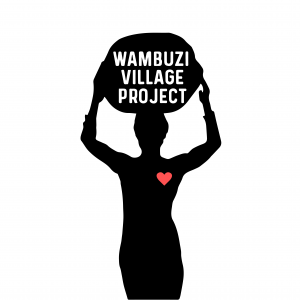A sailor and a doctor walk into a bar – no, it’s not the beginning of a bad joke, it’s actually the beginning of something quite beautiful.
It was by sheer coincidence that I got to know my Zambian friend, Selemani. He was looking for a table for his family in a crowded restaurant when I first saw him. Noticing his struggle, I gestured to him to share our table and thankfully he accepted the offer. Our personalities immediately clicked and I came to learn that he is a doctor who was raised in the remote Zambian village of Wambuzi. Since then we have not only become close friends, but we’ve began working together on the Wambuzi Village Project (WVP) that will positively effect the lives of over 5000 people in Zambia.
With not much more than napkins, our waitress’ ball point pen, and a copious supply of beer, we sketched out high-level ideas that left us both practically speechless and high-fiving by night’s end. The stars had aligned in a way that brought together all the necessary ingredients for success: a military officer trained in design thinking, a Zambian medical doctor, and most importantly – a shared insatiable passion to contribute to the lives of others. Our goals were audacious as we set off to do what initially seems impossible; but it excited me greatly as I interpret such “impossibilities” as personal challenges to design a solution that creates the desired reality.
 As luck would have it, Wambuzi has a tropical climate with an abundance of cassava. Cassava is a root rich in starch and carbohydrates. It is a gluten-free product which can be easily turned into flour and stored with a long shelf life. What Wambuzi lacks, however, are the processing methods, procedures, and logistics to penetrate a cassava product into the North American market. The Wambuzi Village Project will provide a closed loop, sustainable system that will utilize the local resources and know-how of the locals living there. By creating and offering a fair-trade product to the north American market, the WVP will not only create employment, but we also intend to create biofuels from waste products while increasing STEM education in the region.
As luck would have it, Wambuzi has a tropical climate with an abundance of cassava. Cassava is a root rich in starch and carbohydrates. It is a gluten-free product which can be easily turned into flour and stored with a long shelf life. What Wambuzi lacks, however, are the processing methods, procedures, and logistics to penetrate a cassava product into the North American market. The Wambuzi Village Project will provide a closed loop, sustainable system that will utilize the local resources and know-how of the locals living there. By creating and offering a fair-trade product to the north American market, the WVP will not only create employment, but we also intend to create biofuels from waste products while increasing STEM education in the region.
As days of planning, research, and testing turns into weeks, and then months, Selemani and I are gaining momentum in our mission regardless of setbacks. By converting obstacles into stepping stones, we continue to learn more than anticipated in the short time we’ve known each other. The immediate list to things to do and problems to solve is a mile long, but it feels great knowing that our efforts will help people in a far away place that we may never meet.